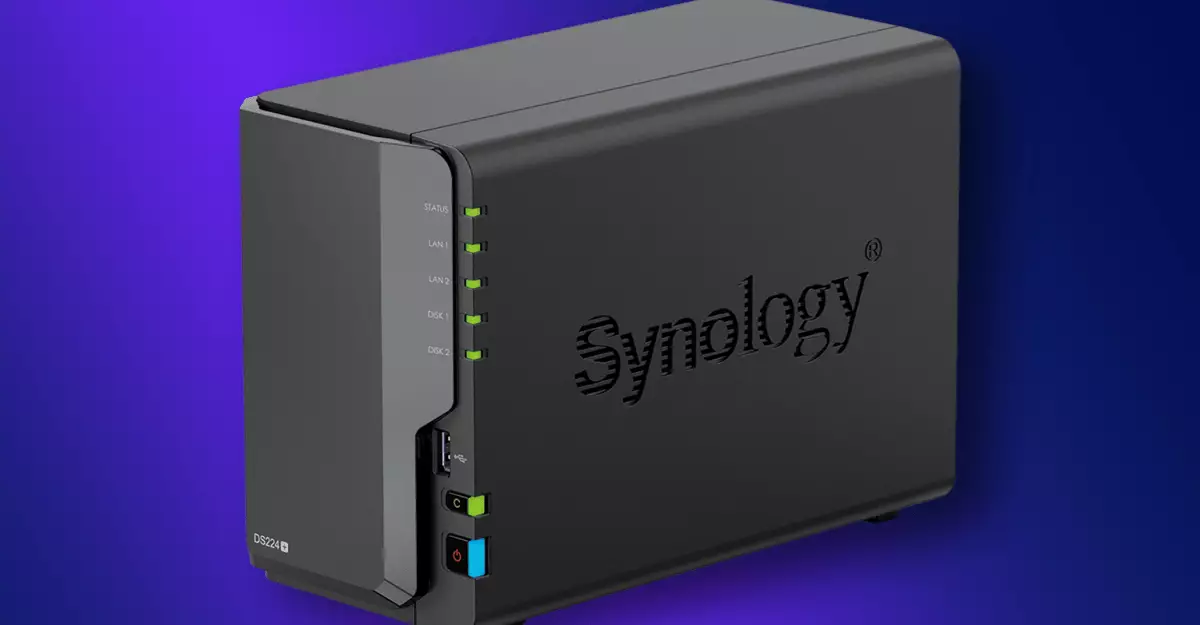Recently, Synology announced a significant paradigm shift regarding third-party hard drive compatibility with their future network-attached storage (NAS) devices. Starting in 2025, the company plans to introduce restrictions that will limit the use of non-Synology branded drives with its new models. What’s interesting, however, is that users of existing Synology NAS systems will be unaffected by these changes. This development raises questions about user choice, system trust, and the balance between reliability and cost-effectiveness in the tech ecosystem.
As per Synology’s official statement and further elaboration from sources like Ars Technica, the initiative is part of a larger trend in tech where manufacturers strive to ensure that their hardware operates securely and reliably. The decision to limit third-party drives to only those certified by Synology seems to stem from their internal testing, which suggests that these certified drives enhance system performance and reduce the likelihood of failures.
Understanding the Rationale Behind the Changes
The technical reasoning behind these restrictions is notable. It points to a growing concern among hardware manufacturers regarding user experience. Synology claims that its certified drives undergo a rigorous validation process, significantly minimizing issues like drive failure or instability when paired with their NAS systems. In an age where data integrity and reliability are paramount, Synology is undoubtedly prioritizing the longevity and performance of its machines.
Yet, this move cannot escape the critical lens of consumer rights and choices. By narrowing the compatibility list to a select few certified drives, Synology essentially reshapes the market landscape. While the company’s approach may be a proactive measure to enhance reliability, it can also be construed as an infringement on consumer freedom. Owners of future Synology devices will face a more limited selection of hard drives, inherently influencing their purchasing decisions and potentially pushing them towards more expensive options.
Market Dynamics: The Cost of Compatibility
In a rapidly evolving market, cost sensitivity is king. For many users, especially those employing NAS systems in home environments or small businesses, the choice of hard drives is often driven by both reliability and affordability. Synology’s decision to restrict third-party drives could inadvertently push consumers towards a path where they pay a premium for certified drives, limiting their opportunity to shop around or take advantage of sales in the broader hard drive market.
This dynamic raises the question: is it truly in the best interest of the consumer? In principle, maintaining a reliable system while safeguarding data integrity is undeniably important. However, by limiting options, Synology may risk alienating a segment of its user base that values flexibility and has historically enjoyed the benefits of a more open ecosystem.
A Glimpse Into the Future: User Experience and Brand Loyalty
The tech landscape is increasingly characterized by consumer expectations for flexibility and customization. Users want the ability to choose the best solutions for their needs without being pigeonholed into proprietary paradigms. Synology has built a reputation for its robust and versatile NAS systems, and this new restriction could have implications for brand loyalty if users feel restricted.
Moreover, it’s essential for brands, especially those like Synology that thrive on community engagement, to listen to their customer base. Effective communication of these changes and ensuring comprehensive support for existing systems can bolster user confidence. Synology’s proactive measures, however warranted, need to be balanced with an understanding of consumer sentiment.
The Need for Transparency and Consumer Engagement
As Synology navigates this new territory, the potential for backlash looms if surrounding transparency isn’t prioritized. Open communication regarding the rationale for these restrictions, coupled with assurances about continued support for existing models, will be critical in maintaining customer loyalty. After all, a brand that fosters transparency and actively engages with its community is more likely to cultivate trust and positive sentiment.
Synology’s future path poses challenges and opportunities. As they tighten control over hard drive compatibility, users will weigh the balance of reliability against freedom of choice. Ultimately, how Synology manages this transition and engages its community will dictate the success of these changes in the eyes of the consumer.

